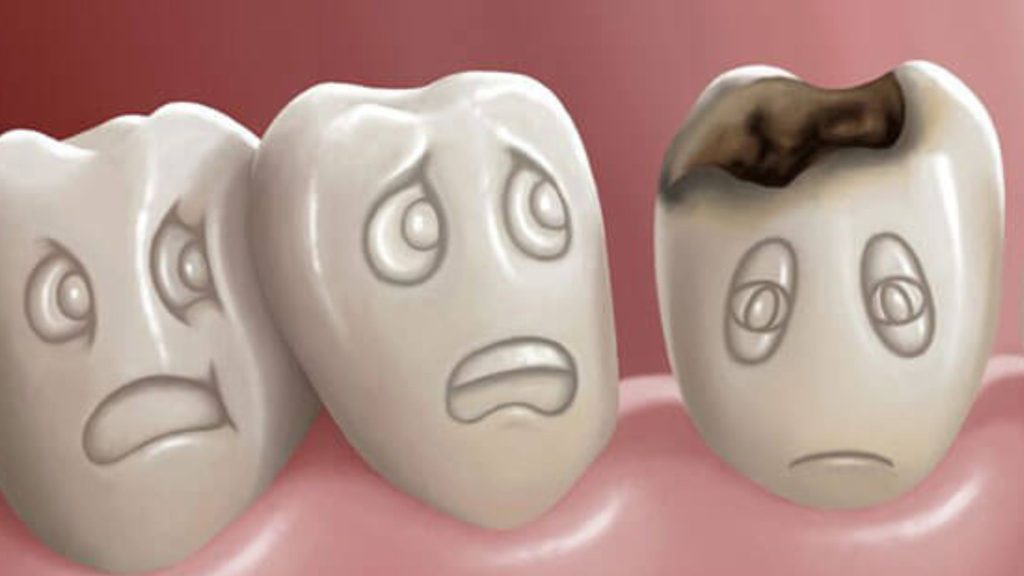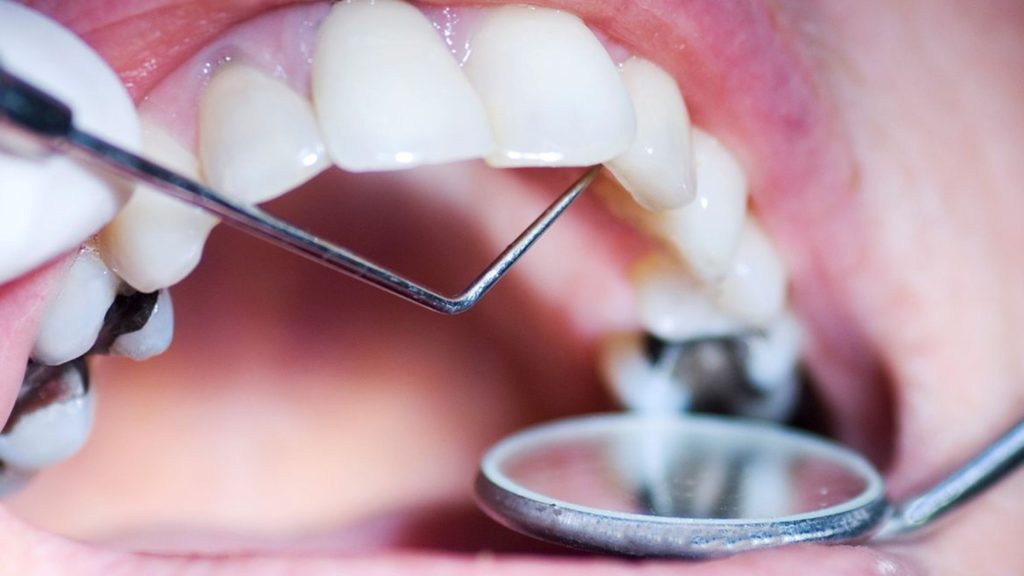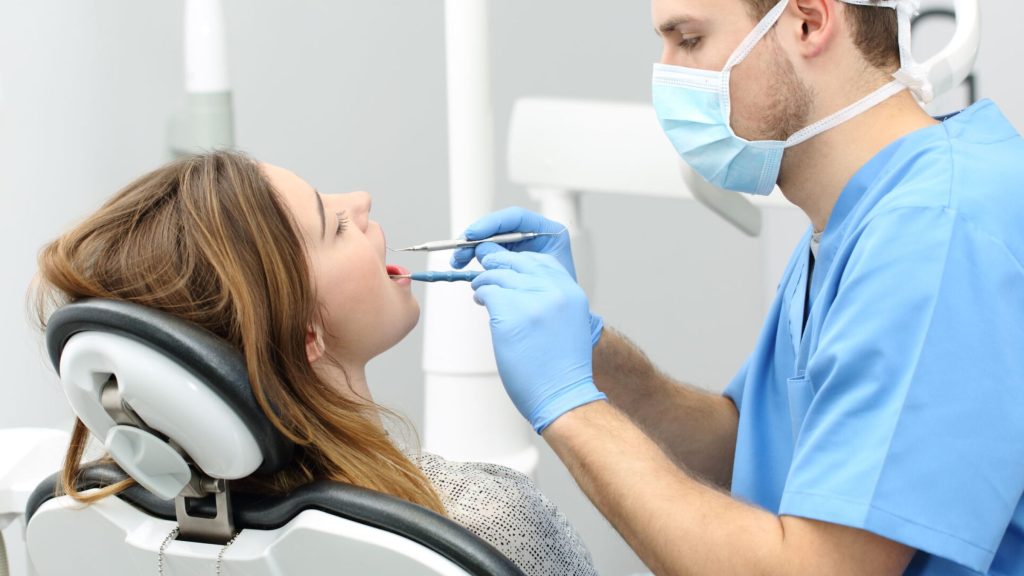Can cavities heal on their own? No! If left untreated, tooth decay will worsen. Cavities in teeth affect people of all ages and are a widespread health concern. “Ignoring” dental decay and hoping it goes away on its own is a common practice among the general population. Nonetheless, this is incorrect.
Find out whether tooth decay may be cured on its own and what happens if you wait too long to have it fixed.
Can Cavities Heal On Their Own?

No, they don’t. The National Institute of Dental and Craniofacial Research (NIDCR) states that tooth decay cannot repair itself. Simply explained, tooth decay is a bacterial infection that may spread. Although self-healing materials may reduce cavities, they cannot repair enamel.
Also, the American Dental Association adds that decay cannot heal without professional intervention. Decay may damage enamel, reach the tooth core, and cause an infection if left untreated.
Thus, oral hygiene against tooth decay, such as frequent dental checkups and quick treatment, is essential.
Dangers of Ignoring Dental Caries

Negative effects on health and well-being might develop if dental care is neglected. By understanding about and preventing tooth decay and seeing the dentist regularly, you may avoid its hazards. To maintain your oral health, let’s discuss tooth decay’s hazards:
Tooth Damage
The enamel hole will grow and harm the tooth core and nerves with dental decay. If left untreated, dental decay will ruin tooth structure. As a result, teeth might become fragile or fall out entirely. Additionally, untreated caries may spread to nearby teeth and cause infection.
Besides, in addition to tooth structural damage, untreated dental decay may create various health issues. For instance, dental decay may impact the circulatory system when germs enter the circulation and travel to other organs. This may cause chronic conditions like diabetes or cardiovascular disease.
Thus, patients should actively treat and regularly see their dentist to discover and cure health issues early to reduce the dangers of tooth decay.
Painful And Inflamed
Dental professionals warn that ignoring cavities may result in discomfort and irritation. Tooth decay will spread and damage the nerves and soft tissues surrounding the teeth if left untreated. This causes mouth irritation due to nerve overstimulation and discomfort.
Eventually, the inflammation will spread throughout the body, potentially compromising its health as a whole.
Impairs Chewing And Digestion
If left untreated, dental decay will destroy tooth tissue, making it hard to chew and digest food.
Furthermore, ingesting caries plaque might induce stomach and intestinal problems.
In conclusion, early detection and treatment of tooth decay will assure chewing, digestion, and bodily health.
Impairs Chewing And Digestion
If left untreated, dental decay will destroy tooth tissue, making it hard to chew and digest food.
Furthermore, ingesting caries plaque might induce stomach and intestinal problems.
In conclusion, early detection and treatment of tooth decay will assure chewing, digestion, and bodily health.
Oral Aesthetics
If the decay has reached the enamel layer, tooth restoration will be harder and costlier.
Also, tooth decay may cause gum tissue inflammation, bleeding, discomfort, and chewing dysfunction, impacting digestion and general health.
Thus, good dental hygiene and early caries treatment is essential to prevent these issues.
When Should You See A Dentist For Tooth Decay?
Due to its prevalence, tooth decay is often overlooked by patients. Additionally, some parents may discount the significance of dental decay in children. Even children without permanent teeth might suffer long-term consequences from dental rot. Tooth decay complications include:
- Toothache.
- Tooth abscess.
- Swelling or pus around the tooth.
- Damaged or broken teeth.
- Having problems chewing.
When tooth decay and cavities become severe, there may be:
- Toothache interferes with daily life.
- Weight loss or nutritional problems due to pain or difficulty eating or chewing
- Loss of teeth, which can affect aesthetics, as well as confidence and self-esteem.
- In rare situations, a tooth abscess (a pocket of pus produced by a bacterial infection) may progress into a life-threatening illness.
Treating Dental Decay

Many individuals suffer from the discomfort and health risks associated with tooth decay. Early treatment of dental decay is the best method to prevent significant consequences. However, not everyone is aware of efficient tooth decay remedies.
We’ll learn about the best tooth decay remedies in this part:
Fillings
The American Dental Association (ADA) found that dental fillings are one of the most common tooth decay treatments. Fillings repair damaged teeth and eliminate cavities.
During the filling process, the dentist will remove the decay and use a filling material to cover the damaged tooth surface. Dental fillings can be composite, amalgam or other materials depending on the condition and location of the decay. After filling, the dentist will use dental tools to make the filling surface smooth and match the real tooth structure.
However, according to the ADA, fillings have certain limits. Dental fillings may wear out or shatter, causing tooth rot. For deep or diseased dental decay, fillings are not acceptable.
If you have tooth decay, consult a dentist to be diagnosed and treated. The expert will determine the best tooth decay therapy for you.
Tooth Extraction
In severe instances of tooth decay, extraction may be necessary. However, extraction should only be done cautiously if other therapies fail.
The American Dental Association warns of discomfort, bleeding, and inflammation after tooth extraction. In addition, improper tooth extraction may cause jaw, chewing, and cosmetic issues. Thus, only skilled dentists should remove teeth.
Therefore, seek a dental expert for detailed and reliable advice on tooth decay therapy.
Fluoride Treatments
The use of fluoride helps both prevent and treat cavities. Dentists prescribe fluoride products including toothpaste, mouthwash, and dispersants to prevent cavities and tooth rot.
However, high-risk children and adults should use fluoride to cure tooth decay. In early tooth decay, this treatment may rebuild enamel.
In addition, a condition known as fluorosis may develop from the overuse of fluoride. Therefore, follow the manufacturer’s recommendations and only use fluoride-containing products as directed.
Porcelain Veneers
Today’s most common tooth decay therapy is porcelain veneers. Additionally, ceramic veneers are used offsite to restore damaged or missing teeth. This extremely attractive approach improves chewing performance, prevents tooth decay, and looks natural.
Ceramics including porcelain, zirconia, and composite resin are used to create porcelain crowns. They look excellent since they’re polished and finished like real teeth. However, this tooth decay therapy is more costly and time-consuming.
Conclusion

In conclusion, tooth decay cannot cure on its own and may cause major dental and overall health issues if left untreated. Therefore, we must practice good oral hygiene, eat well, and see the dentist frequently to identify and treat tooth issues. oral teeth.
We recommend Spring Orchid dental facility in Bassendean for tooth decay treatment through checkups and general dentistry advice. To provide safe, fast, and successful therapy, we have skilled dentists and contemporary technology. We’ll help you have healthy teeth and a brilliant smile!
FAQs
Is Tooth Decay Contagious?
Yes, cavities can be considered contagious, but not in the same way as viral infections like the flu. The bacteria responsible for cavities, primarily Streptococcus mutans, can be transferred from one person to another through saliva. This often occurs through sharing utensils, drinks, or kissing. Children are particularly vulnerable as they can acquire these bacteria from parents or caregivers.
Can I Cure Tooth Decay At Home?
You cannot fully cure tooth decay at home, but you can manage early symptoms with remedies like saltwater rinses. However, these methods do not replace professional dental treatment for established cavities.
Therefore, consult your dentist if you suspect dental decay. In addition, frequent dental checkups will identify and treat dental issues early, maintain your teeth healthy, and lower the risk of dental illnesses.
Is There A Natural Way To Repair Tooth Decay?
Currently, there is no proven natural therapy that will help caries recover fully on their own. Some people use natural tooth decay therapies like avocado oil, sea salt, baking soda, coconut oil, or herbs for pain or inflammation.
However, these solutions are temporary and do not replace expert dental caries treatment. If you think you have tooth decay, see your dentist for a thorough exam and treatment.





